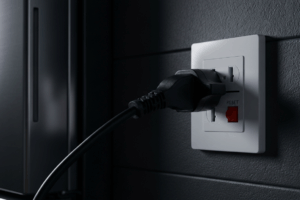
Alabama Electrician License Renewal & CE Guide for 2025
Alabama Electrician License Renewal & CE Guide for 2025
To renew an Electrical Contractor license, a key point of compliance is the continuing education (CE), which is required every two years (odd years). This guide cuts through the confusion, providing clear, authoritative information on the requirements for every license type, from continuing education units (CEU) to navigating key NEC code updates. We’ll break down the rules to ensure you have the accurate information needed to keep your license active and your career on track.
Navigating Alabama’s 2025 Electrical License Renewal Cycle
In Alabama, the continuing education requirement for Electrical Contractors is on a two-year cycle. This means that for 2025, it is critical to know if you are in the year that your CE credits are due.
You can verify your license status and CE requirements by checking the Alabama Electrical Contractors Board (AECB) website. Planning ahead is essential to avoid any penalties or a lapse in your license, and the first step is confirming your specific CE obligations for the current renewal period.
Alabama Electrician Continuing Education: A Clear Breakdown by License Type
Continuing education (CE) is a cornerstone of license renewal, but the requirements are not the same for everyone. The AECB has established distinct rules for different license types. Understanding these differences is vital for compliance. Below is a clear comparison of the CE obligations for 2025.
| License Type | Required CE Hours | Renewal Cycle | Key Requirements & Notes |
|---|---|---|---|
| Electrical Contractor (often called Master Electrician) & Provisional Electrical Contractor | 14 Hours | Annual (CE due every 2 years) | The Alabama Electrical Contractors Board requires 14 hours of continuing education every two years, taken with an approved provider. The courses must cover relevant topics, such as the National Electrical Code (NEC) and electrical safety. |
| Journeyman Electrician | 0 Hours | Annual | According to the AECB website, licensed Journeymen are currently NOT required to submit continuing education hours to renew their journeyman electrician license. |
Electrical Contractor (Master) and Provisional Contractor Requirements
If you hold an Alabama electrical contractor license—a title the state notes is often used interchangeably with “master electrician”—you are required to complete 14 hours of CE every two years to renew. According to the Alabama Electrical Contractors Board website, these hours must be completed with a state-approved CE provider. The focus on the National Electrical Code (NEC) is critical, as it ensures you are up-to-date on the latest safety and installation standards. These requirements also apply to anyone holding a provisional electrical contractor license. Exploring online electrical courses from an approved provider is an efficient way to meet these obligations.
The Journeyman Exemption: A Key Distinction
In a significant departure from the contractor requirements, licensed Journeyman electricians in Alabama are currently exempt from the CE requirement. The official AECB “Continuing Education” page clearly states that Journeymen are not required to submit CE hours for renewal. While this streamlines the renewal process, staying informed about NEC code changes and industry best practices is still a valuable part of professional development. Even without a mandate, understanding new codes and technologies is a smart career move.
Key Renewal Details for 2025
Beyond CE hours, there are several other components to your Alabama electrician license renewal that you need to manage. Staying on top of fees, code updates, and renewal procedures will ensure a smooth process.
Renewal Fee Information
A common question every renewal cycle is the cost. Based on the current fee schedule from the AECB, the annual renewal fee is $150.00 for an Electrical Contractor license and $35.00 for a Journeyman Electrician license. Because fees can change, it is still essential to verify the exact renewal fee directly with the Alabama Electrical Contractors Board before submitting your payment.
Governing Code: The 2020 NEC
The Alabama Division of Construction Management officially adopted the 2020 National Electrical Code (NEC), effective July 1, 2022. This is the baseline standard for compliant installations across the state. However, the Alabama Electrical Contractors Board bases its licensing examinations on the 2023 NEC. This is an important distinction to take note of. While the current standards are harmonized, it is a perfect example of why electrician continuing education is crucial; it bridges the gap between today’s adopted code and the newer standards (like the 2023 NEC) that will shape the future of the trade.
State Reciprocity Agreements
For electricians looking to work across state lines, Alabama maintains state reciprocity agreements with several other states. These agreements can simplify the process of obtaining an Alabama license if you are already licensed in a partner state. However, requirements can be very specific, and you will likely still need to pass Alabama’s business and law exam. Always check the AECB website for an updated list of reciprocal states and the exact application process.
Your 2025 Renewal Action Plan
The state has made the process more convenient with an online license renewal portal, available on the AECB website. Here are some tips to help you prepare:
- Confirm Your CE Status: Check the AECB portal to confirm if your two-year CE cycle requires you to submit hours this year.
- Choose an Approved CE Provider: For contractors, select a CE provider that is approved by the Alabama Electrical Contractors Board. ExpertCE offers courses designed to meet Alabama’s requirements.
- Complete CE Early: Don’t wait until the last week. Completing your CE early gives you a buffer to handle any unexpected issues and ensures your completion is reported to the board in time.
- Keep Your Certificates: Always download and save a copy of your course completion certificates for your personal records.
For more general guidance on making this process as efficient as possible, check out these electrician license renewal tips.
Staying compliant with your Alabama electrician license renewal is more than a regulatory hurdle; it’s a commitment to professionalism, safety, and your career. By understanding the specific requirements for your license type and planning ahead, you can navigate the 2025 renewal with confidence. Ready to get started? Browse our courses to find state-approved CE that fits your schedule.
Related Resources
Primary Sources
- Alabama Electrical Contractors Board (AECB) Continuing Education: https://aecb.alabama.gov/continuing-education/
- AECB Forms and Testing Information: https://aecb.alabama.gov/forms-and-testing-information/
- Alabama Division of Construction Management – State Building Code: https://dcm.alabama.gov/bldg_code.aspx
- Alabama Electrical Contractors Board (AECB) Home: https://aecb.alabama.gov/
Disclaimer: The information provided in this educational content has been prepared with care to reflect current regulatory requirements for continuing education. However, licensing rules and regulations can vary by state and are subject to change. While we strive for accuracy, ExpertCE cannot guarantee that all details are complete or up to date at the time of reading. For the most current and authoritative information, always refer directly to your state’s official licensing board or regulatory agency.
NEC®, NFPA 70E®, NFPA 70®, and National Electrical Code® are registered trademarks of the National Fire Protection Association® (NFPA®)



